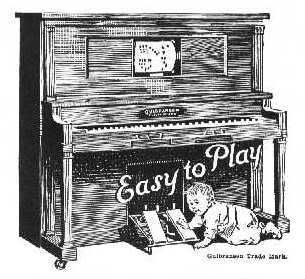skip to main |
skip to sidebar
Player Piano
Within this novel, Kurt Vonnegut utilizes irony as an important aspect of his story line. This irony plays a humorous role within the novel that allows the reader to enjoy the tale more thoroughly while portraying Vonnegut's point. With this said, the reader ends up concluding that while the machines enhance daily life by making it easier, they also took away from any point in living. No one was truly happy except for a select few that were honestly ignorant to what happiness ultimately is. An example of all of this irony that proves Vonnegut's point is on page 271 within the novel. On this first page of the chapter, one can see the ironic situation of the football coach. He is higher up in the hierarchy of the school than the Arts & Sciences teacher. This is clearly a commentary on today's society on how even today, people sometimes put sports in front of academics. The purpose of living is also brought up in this novel. Without realizing it, the more the characters create machines, the more a person's purpose in the world dissapears. Look at Bud from the novel. He created a machine that did his job better than him therefore leading him to be fired because of it. The thing that he loves to do has been taken away from him leaving with nothing to be passionate about. When this occurs, society loses a little piece of what could be a major part of the future. Humanity creating machines is the biggest betrayal in the novel. In the end, Vonnegut uses what he is most strong with in his writing to benefit his novel as a whole. Irony, is the tool that alludes to all things throughout the novel.So as I am sitting here trying to figure out what I would rate this novel, I realize that I cannot remember whether or not I enjoyed the book. With this in mind, I would probably give this novel a six. Me not being able to remember whether I enjoyed reading it or not means that it was not that fantastic of a book. Yet, if I did not like this book at all, I would clearly still remember that too. This leaves me indifferent with a little bit more of a lean to liking the novel. It was very well written and it was a very easy read. I also liked how Vonnegut used irony as humor which made it more enjoyable. I really cannot think of anything in particular that I did not like about the novel.pg 195-198: As for a quote, I chose a passage. I found the scene from the Meadows particulary humorous. Yet while being humorous, Vonnegut still managed to get what he was trying to portray across. He used many literary tools within this passage such as repetition and irony. The repetition of what the speaker was saying just showed that technology is preventing and interupting human interaction. The ironic part is what the speaker is actually saying. The speaker is telling the men to converse and make new aquaintances, but the speaker is constantly talking. With its boisterous voice, it is nearly impossible to hold a conversation none the less think straight. This passage also reminded me of Farenheit. In Farenheit, they would put shells in the ears of the people to stop them from having any thoughts. If any thinking went on, the shell would blast the ear with a sound that would create the person to not be able to think straight.

2 comments:
Nice point about the football coach and sports being placed on a plateau above academics. It is very true. Western culutre; especially Americans, place a lot of value on entertainment. Just look at how many millions a professional athlete gets paid a year versus someone in an office job working hard to make deadlines. I'm not saying that it is easy to be a professional athlete, but at the end of the day, they get paid to play a game, and after a few seasons should have more than enough money. Most people have to work for years. The irony of it is we realize this, sometimes complain about it, but still by the tickets. As a society, we fuel technology, amongst other things, to make our lives better, but we end up complicating things. Vonnegut didn't have to create the irony for this novel; it was already there.
Very good analysis, but not remembering the novel very well does not mean you don't have to post a reflection containing analysis. I apologize for the wordiness of that sentence.
Post a Comment